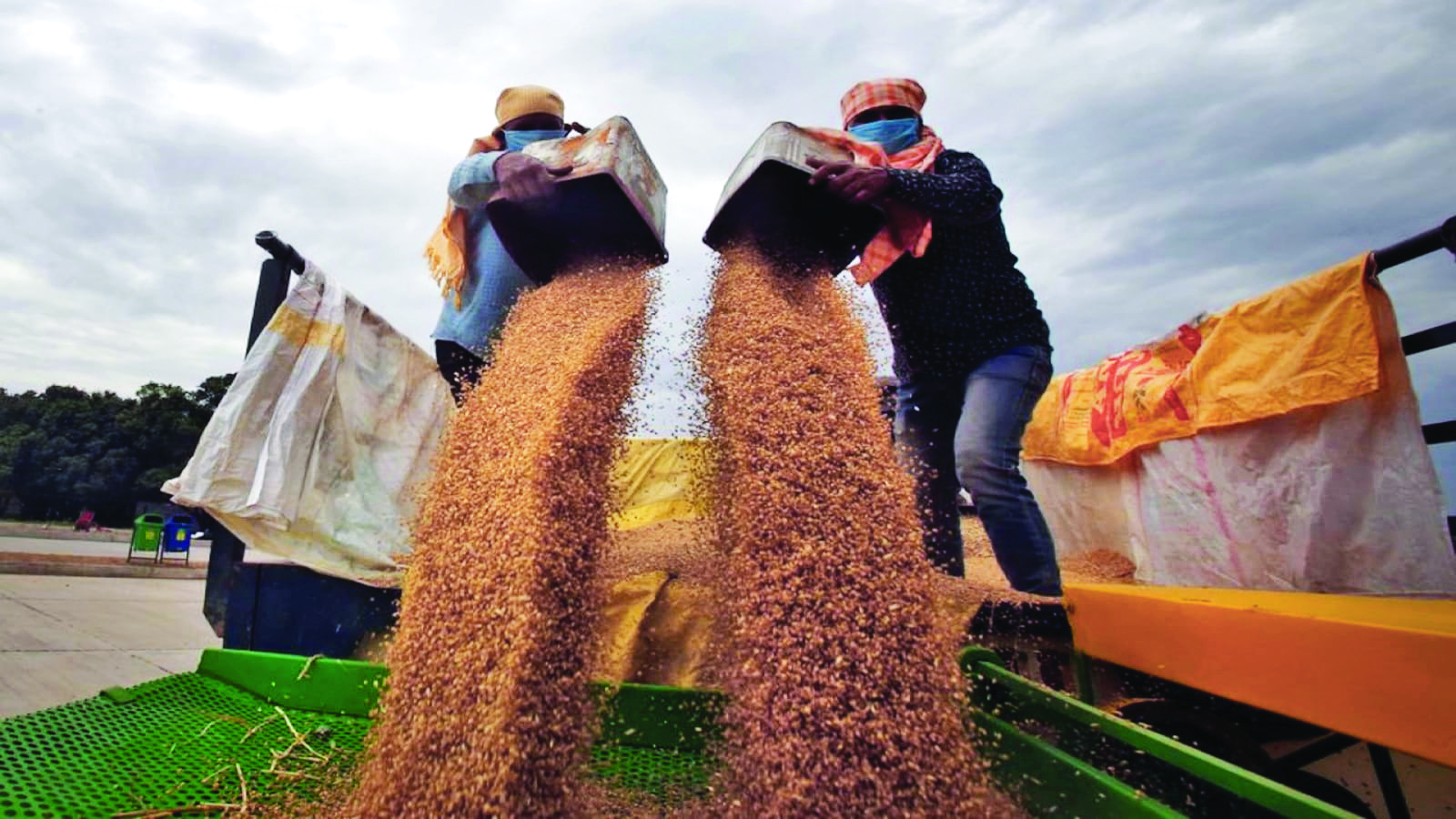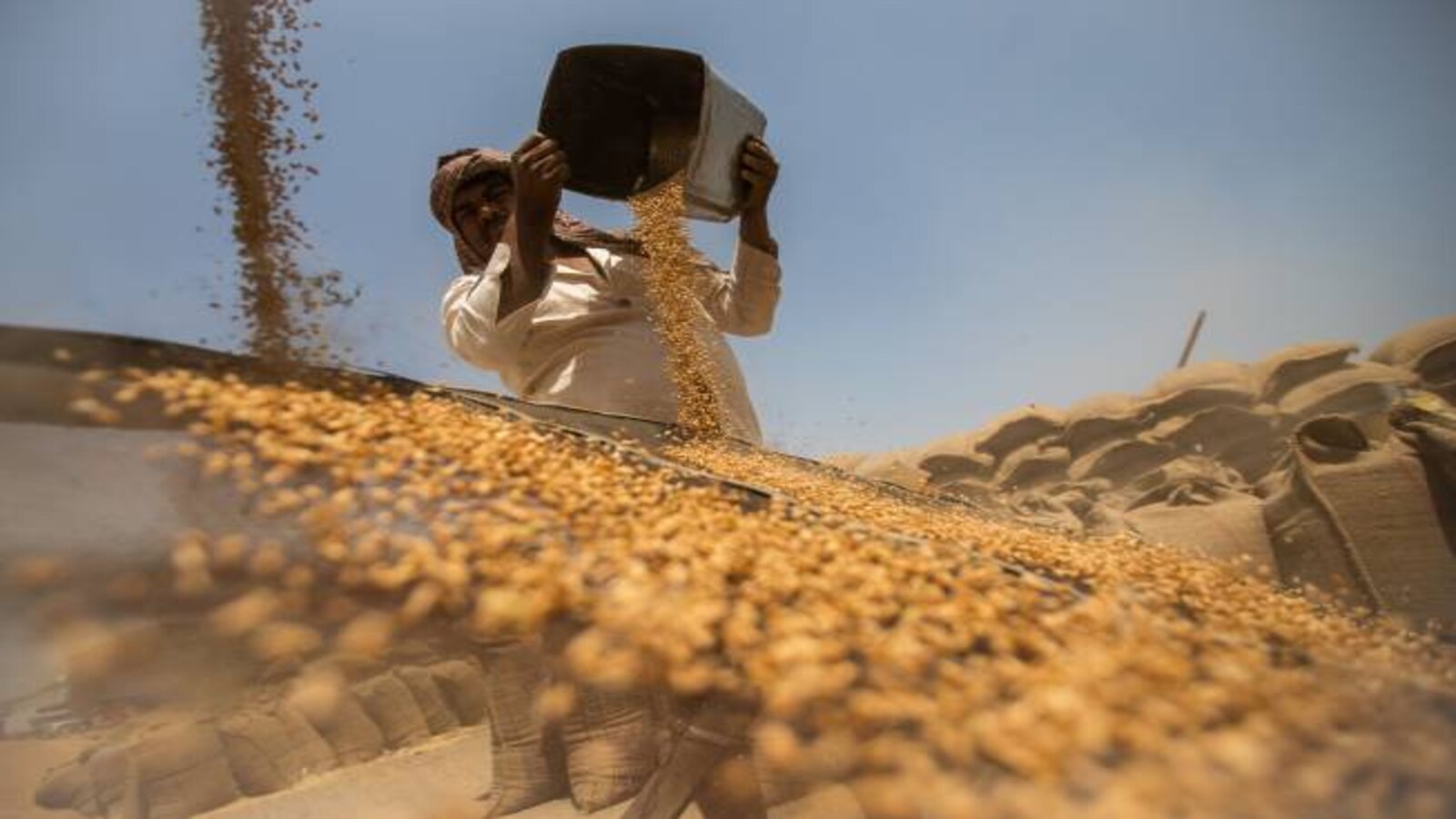Government Wheat Sale: 3.04 Million Metric Tons in Open Market

Government Wheat Sale: 3.04 Million Metric Tons in Open Market
In a significant move to address the burgeoning grain stocks and stabilize food prices, the government recently announced the sale of 3.04 million metric tons (MT) of wheat in the open market. This decision holds paramount importance for both the agricultural sector and the economy at large.
This year, the Food Corporation of India (FCI) has sold 3.04 million tonnes (MT) of wheat to bulk purchasers under the open market sale system (OMSS) in an effort to lower costs.

Against 0.3 MT offered for sale to flour millers and processors, the corporation sold 0.28 MT of wheat on Wednesday, the greatest amount sold in a weekly e-auction that started in June. In this week’s e-auction, 2389 buyers purchased the wheat.
The government has chosen to provide 0.3 MT of wheat starting this week, up from the 0.2 MT it has been selling in bulk to buyers like flour millers every week since June, in an effort to boost the amount of wheat available in the market.
Compared to the buffer of 13.8 MT for January 1, FCI held 22.2 MT of wheat inventories at the start of the month.
The official from the food ministry stated that on Wednesday’s auction, the weighted average selling price of wheat under the open market sale programme was Rs 2309.52/quintal, compared to the reserve price of Rs 2127.56/quintal.
The decision to sell 3.04 MT of wheat in the open market was taken by the government after careful consideration of various factors.

One of the primary reasons behind this move is the excessive wheat stockpile in government-owned granaries. Over the years, the government has procured surplus wheat from farmers under the Minimum Support Price (MSP) scheme, which has resulted in an overabundance of the grain.
The sale of wheat in the open market is expected to stabilize wheat prices, ensuring that farmers receive a fair price for their produce. By reducing the surplus in government stocks, the market forces of supply and demand will play a more significant role in determining prices.
Farmers can benefit indirectly from this move as it may lead to increased demand for their wheat. If the prices stabilize at a reasonable level, farmers could potentially see improved income and profitability.
The government incurs significant costs in storing surplus grains. By selling a portion of its wheat stocks, it can reduce these storage expenses, freeing up resources for other crucial sectors.
For consumers, the sale of wheat in the open market can potentially lead to price stability for wheat-based products. Stable food prices are essential for household budgets and can contribute to overall economic stability.

A consistent supply of wheat in the market ensures that consumers have access to this staple food item without significant price fluctuations. This is particularly important for low-income households who spend a significant portion of their income on food.
The government’s decision to sell surplus wheat can provide fiscal relief by reducing the financial burden of storing excess grains. These savings can be reallocated to other critical sectors such as healthcare, education, and infrastructure development.
By curbing food inflation through the sale of wheat in the open market, the government can contribute to overall economic stability. Lower food prices can help control inflation, making essential goods more affordable for the general population.

The sudden influx of a large quantity of wheat into the open market could temporarily disrupt the supply-demand dynamics, affecting prices and potentially harming small traders.
Ensuring efficient distribution and preventing hoarding will be crucial to the success of this initiative. The government must have robust mechanisms in place to monitor the movement of wheat.
While this move aims to benefit farmers in the long run, there is a possibility that immediate market fluctuations could negatively impact those who have already sold their produce to government agencies at MSP.
The government’s decision to sell 3.04 million MT of wheat in the open market is a significant step toward addressing surplus grain stocks, stabilizing food prices, and improving fiscal management.

However, it must be implemented with care to avoid unintended consequences and ensure that both farmers and consumers benefit from this strategic move.
Balancing the interests of various stakeholders while maintaining food security remains a complex challenge, but it is an essential one for the sustainable growth of the agricultural sector and the overall economy.




